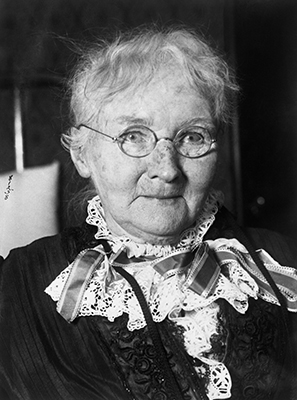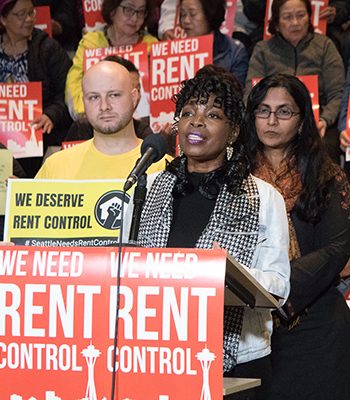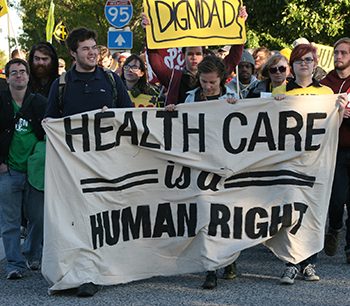“Think of the thousands who are killed every year and there is no redress for it. We will fight until the mines are made secure and human life valued more than props. Look things in the face. Don’t’ fear a governor; don’t fear anybody. You pay the governor; he has the right to protect you. You are the biggest part of the population in the state. You create its wealth, so I say, let the fight go on; if nobody else will keep on, I will.” — Mother Jones, 1913
By protecting the right to organize, societies can foster economic justice, improve mental health, and ensure that workplaces prioritize dignity over exploitation. Collective bargaining is the time-tested response to the age-old problem of power imbalance. It’s based on a simple principle: individuals begging for fair treatment can be ignored, but groups demanding it are harder to dismiss.
Historically, the labor movement didn’t emerge because business owners suddenly had a crisis of conscience about worker rights. It arose because workers got together, realized they had strength in numbers, and decided they’d rather not die in coal mines for pocket change. From the eight-hour workday to child labor laws, many of the rights we take for granted were hard-won through strikes, protests, and the occasional dramatic confrontation involving picket signs versus guns.
Of course, collective bargaining isn’t just about wages. It’s about control—over working conditions, job security, health benefits, and the right to occasionally sit down without being accused of slacking. Without unions, many modern workplaces would resemble feudal estates, with CEOs in the role of lords, middle managers as knights, and workers as the peasants quietly toiling away, praying for a raise that never comes.
The psychological benefits of collective bargaining are profound. For starters, it reduces workplace anxiety. Knowing you have a contract that protects against arbitrary firings, unsafe conditions, and capricious management decisions provides a sense of security that’s hard to overstate. It transforms the workplace from a battlefield of survival into—dare we say it—a somewhat humane environment.
Moreover, collective bargaining fosters a sense of solidarity. Humans are social creatures; we thrive when we feel part of something larger than ourselves. Unions create communities within workplaces, where mutual support replaces isolation, and collective action replaces individual helplessness. This doesn’t just improve mental health; it cultivates resilience, empowerment, and the radical notion that your value isn’t determined solely by a spreadsheet in the HR office.
Critics, of course, love to paint unions as relics of the past—unnecessary in today’s “flexible” job market, where every gig is an “opportunity” and every unpaid internship is “valuable experience.” But let’s be real: “flexible” often means precarious, and “opportunity” usually means “we’d rather not pay you what you’re worth.”
In fact, the decline of union membership has paralleled the rise of wage stagnation, income inequality, and soul-crushing workplace cultures where “team-building exercises” replace actual worker input. Coincidence? Not likely. When workers lose bargaining power, employers gain the freedom to cut corners, suppress wages, and introduce innovations like “open-plan offices” (a design that scientifically maximizes distractions and minimizes sanity).
The psychological toll of weak labor protections is significant. Job insecurity breeds chronic stress, which isn’t just unpleasant—it’s deadly. Studies link job-related stress to heart disease, depression, and even reduced life expectancy. When people feel powerless at work, it affects not just their productivity but their mental health, relationships, and overall quality of life.
Conversely, countries with strong union traditions—like Sweden, Norway, and Finland—tend to have lower income inequality, higher worker satisfaction, and fewer dystopian office environments where the highlight of your day is an understocked vending machine. It’s not magic; it’s collective bargaining.
The erosion of collective bargaining rights hasn’t just hurt workers; it’s weakened democracy. When people have no voice in the workplace, they’re less likely to engage in civic life. Unions have historically been incubators for political activism, voter mobilization, and social movements. Their decline has left a vacuum, filled not by grassroots democracy but by corporate lobbying and political apathy. Unionized workplaces often have higher productivity, lower turnover rates, and better-trained employees. When workers are treated well, they’re more engaged, loyal, and invested in their organizations.
Moreover, collective bargaining reduces the need for government intervention. When workers can negotiate fair wages and benefits, there’s less reliance on public assistance programs. It’s ironic that the same critics who decry government “handouts” often oppose unions, even though strong unions reduce the need for those very programs.
The right to organize is a cornerstone of freedom. It’s the embodiment of democracy in the workplace—a space where many people spend most of their waking hours. Without it, workplaces become mini-autocracies, where decisions are made by the few, for the few, with little regard for the well-being of the many.
The resurgence of labor movements in recent years—from teachers’ strikes to union drives at major corporations—reflects a growing recognition that the “future of work” doesn’t have to mean gig economy exploitation and corporate feudalism. It can mean dignity, security, and shared prosperity.
But unions aren’t perfect. Like any institution, they can become bureaucratic, resistant to change, or overly focused on protecting the status quo. That’s why democratic participation within unions is crucial. Workers need to hold their representatives accountable, ensuring that unions remain dynamic, responsive, and genuinely representative of their members’ interests.
Collective bargaining is about respect. Respect for labor, for the people who keep society running, for the idea that work should be a path to fulfillment, not exploitation. It’s a reminder that power, when left unchecked, consolidates—and that the antidote isn’t silence, but solidarity.
Therefore, under Folklaw:
The right to collective bargaining shall be protected and promoted as a fundamental labor right. Workers shall have the freedom to organize, form unions, and negotiate collectively without fear of retaliation or discrimination. Employers will be required to engage in good faith bargaining, with legal mechanisms to enforce fair labor practices. Union-busting activities, including intimidation and coercion, will be prohibited.
Collective agreements will cover wages, benefits, working conditions, and job security, ensuring that labor rights evolve with changing economic conditions. Democratic participation within unions will be encouraged.






Discussions
There are no discussions yet.